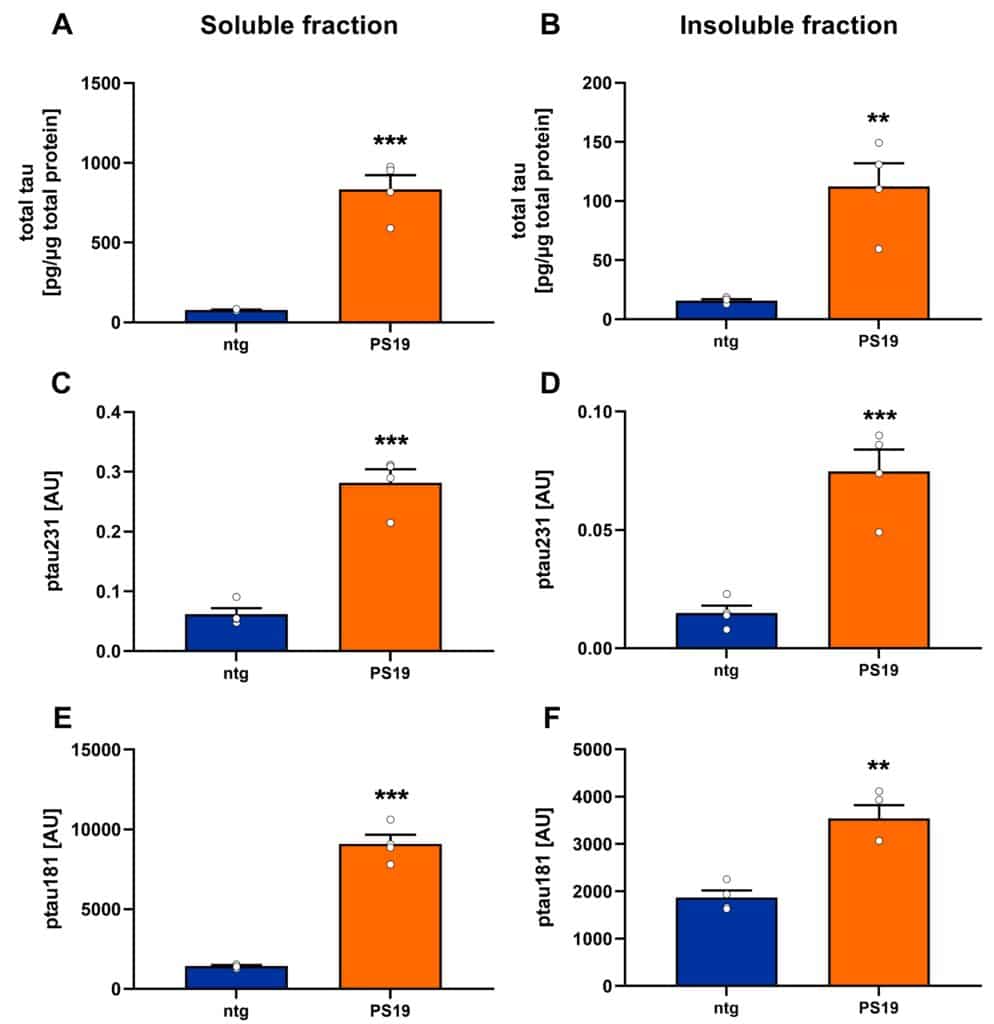Intracellular accumulation of hyperphosphorylated and aggregated microtubule-associated protein tau (MAPT) in neurons and glial cells are characteristics of tau pathology in some neurodegenerative diseases such as Alzheimer’s disease (AD).
The PS19 transgenic mice were developed at the University of Pennsylvania School of Medicine. PS19 mice are overexpressing a human tau T34 isoform and 4 microtubule binding repeats (1N4R) of the tau protein with P301S mutation under the regulatory control of the murine prion promoter. PS19 mice are a popular model to study tau pathology, tau aggregates, as well as other AD-related symptoms such as age-associated cognitive impairment.
The most important characteristics of PS19 mice are:
- Neuroinflammation
- Brain atrophy and neuronal loss in different brain areas
- Microgliosis and astrocytosis
- Tau seeding activity
- Age-associated cognitive impairment
- Muscle weakness and neurogenic muscular atrophy
- Reduced survival
Analysis of total tau, ptau231 as well as ptau181 revealed significant increases in the soluble and insoluble fractions of PS19 transgenic mouse brains compared to non-transgenic littermates (Fig. 1 A-F).

Figure 1: Quantification of total tau, ptau231 and ptau181 in the soluble and insoluble brain fraction of PS19 transgenic animals. Bar graphs with aligned dot blots with group means + SEM of all animals (n=4 per group). Unpaired t-test; **p<0.01; ***p<0.001.
QPS Neuropharmacology offers a custom-tailored study design for PS19 mice, and we are flexible to accommodate your special interests. We are also happy to advise you and propose study designs. PS19 mice show relevant features of AD already at 3 months of age. Based on various options to study PS19 mice, your study will be customized according to your requirements. Furthermore, wild type littermates are available as control animals needed for proper study design.
We are happy to evaluate the efficacy of your compound in the PS19 mouse model! The most common readouts are:
